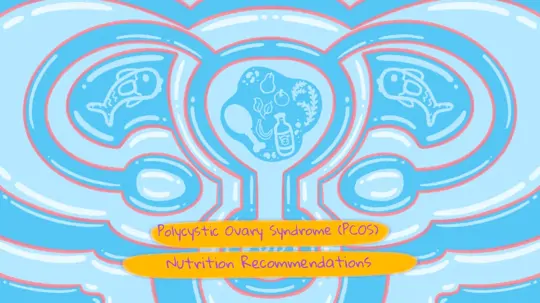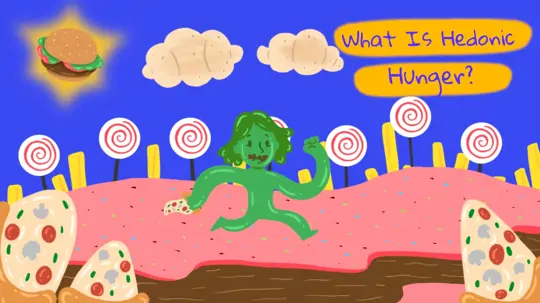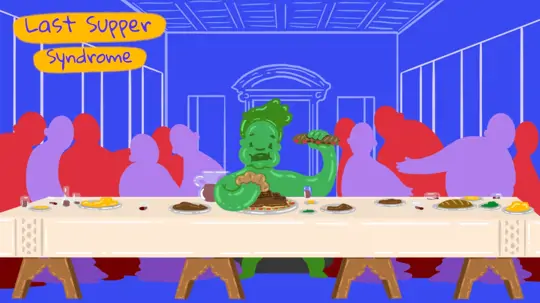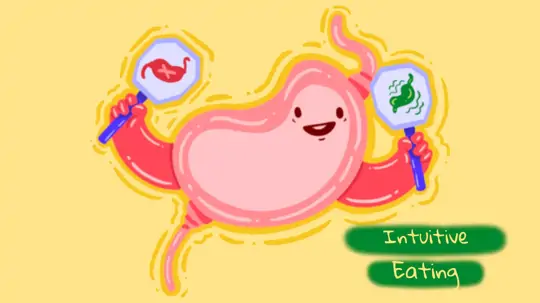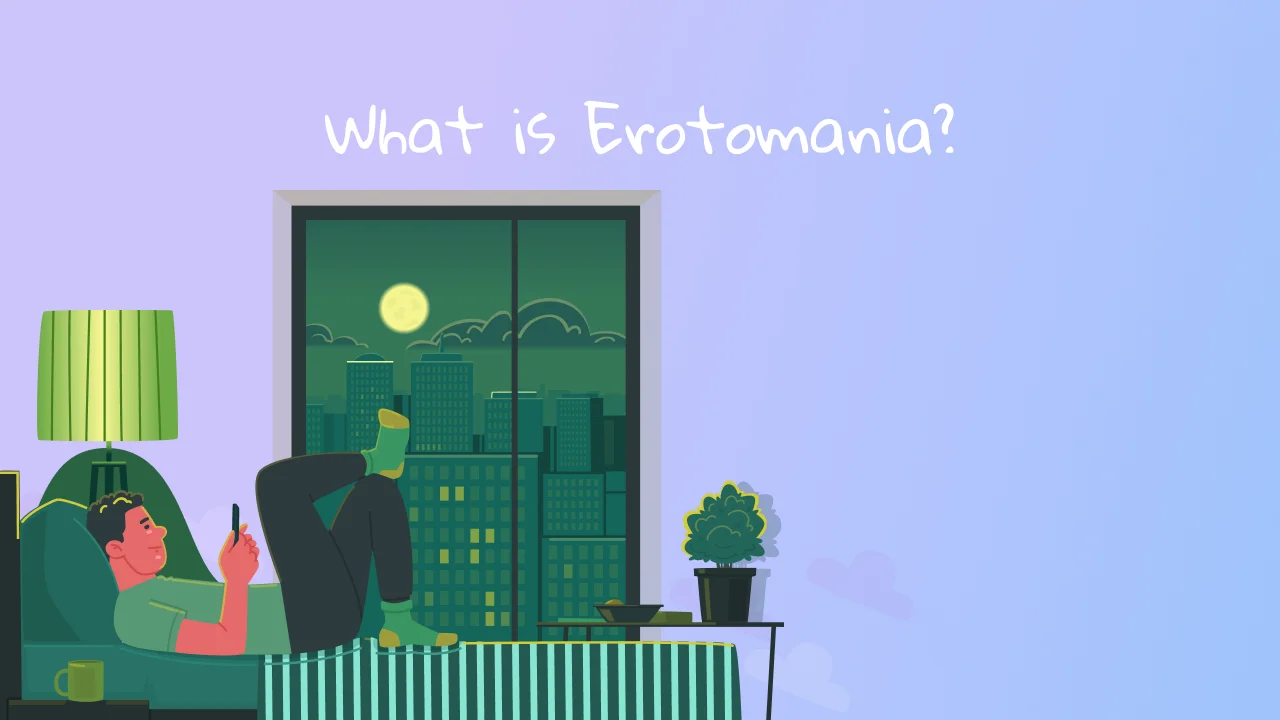
Start feeling better today!
Connect with your therapist today and take control of your life like our 850.000 happy clients.
Get StartedThe Invisible Chains of Unrequited Love: Erotomania
When it comes to a feeling that affects every aspect of history and life as much as "love," it's impossible not to look back in time. Let us begin in ancient Greece by telling a story from Greek mythology that inspired the sculpture "Apollo and Daphne" by Gian Lorenzo Bernini.
Apollo, who is a skilled archer as well as the god of music and art, mocks and angers Eros, the god of love. As a result, Eros punishes him. From the two arrows he prepared, Eros shoots the golden arrow that makes Apollo love and the bullet that makes him hate the beautiful nymph Daphne.
While Apollon is chasing after Daphne, whom he adores, Daphne continues to flee1. There is a great deal of unrequited love. Daphne is said to transform into a laurel tree as a result of her pleas for salvation.
Following this heartbreaking story, we may have felt compelled to consider the role of unrequited love in real life. Is it possible that this feeling, which is both bitter and sweet like love and nourishes our souls if it is healthy, can harm both our lives and the environment?
How can the experience of love, both reciprocal and unrequited, be linked to a mental disorder? This article will discuss erotomania, a syndrome that describes exactly that. So, what exactly is erotomania, also known as unrequited love syndrome?
What is Erotomania?
Erotomania, also known as De Clérambault Syndrome, is a rare mental health problem in which a person becomes obsessed with the idea that another person loves them intensely2.
Erotomania is a type of delusion. In psychology, delusions or illusions are rigid beliefs that do not change even when evidence to the contrary is presented3. Contrary to popular belief, the new Erotomania is not a disorder that causes people to fall in love with everyone. Similarly, it does not always imply falling in love.
Overview from the Erotomanic Person's Perspective
The erotomanic person develops the delusional belief that the person they love loves them from afar. The object perceived as belonging to a higher social class and appearing inaccessible is generally thought to be the person who first declared their love4. The object is frequently a public figure, a famous person, or someone of higher status, but it can be anyone3.
The erotomanic person may believe that the other person is attempting to send them secret messages through information or thoughts via telepathy. However, the person they believe is in love with them may be unaware of their existence2.
The erotomaniac, on the other hand, may present compelling, exaggerated evidence of the person's affections and, paradoxically, interpret many counter-evidences, such as rejection, as hidden declarations of love4. This obsession with being loved by someone else is, of course, unfounded. In many cases, the erotomanic person has never met the person with whom they are obsessed2.
Although the majority of erotomaniac cases are women, erotomania is more common in men in the legal sector, such as courts, prisons, and sheltered hospitals4.
What are the Types of Erotomania?
Erotomania is typically classified into two groups by clinical experts3.
Primary Erotomania
Primary erotomania, also known as De Clérambault Syndrome, is a type of delusional disorder. This type is not accompanied by another mental disorder; the symptoms appear quickly and may last for a long time.
Secondary Erotomania
Other than delusional disorder, it is regarded as a symptom of mental disorders. Symptoms may appear gradually and intermittently.
Erotomania is also frequently associated with bipolar disorder. Anxiety disorder, on the other hand, can be linked to issues such as drug or alcohol addiction, eating disorders such as bulimia or anorexia, and attention deficit hyperactivity disorder (ADHD)2.
Does Erotomania Cause Schizophrenia?
The question of whether this type of delusion, in which there is a disconnection from reality, has a connection with schizophrenia, which is widely used in the public—unfortunately, it is frequently misused—may arise.
It should be noted at this point that erotomanic delusion can be a symptom of schizophrenia, but this is not always the case. A person suffering from erotomania does not necessarily suffer from schizophrenia, and a person suffering from schizophrenia may not suffer from erotomanic delusions.
Although erotomania is much more advanced than unrequited love, it is still a serious problem that must be addressed; however, we may have feelings or desires similar to "love" that we are unable to express in everyday life.
These are perfectly normal experiences, and even if they "naturally" cause us pain, they cannot "alone" lead to a disorder like schizophrenia, which has a biological basis and numerous risk factors. Having the right information and raising awareness about such issues can help avoid stigmatization, which is extremely harmful.
What are the Symptoms of Erotomania?
How is erotomania diagnosed? Erotomania can be diagnosed based on its emotional and behavioral symptoms. These symptoms are as follows1:
Emotional Symptoms
- Longing for the person who is thought to be in love with them
- Feelings of loneliness and emptiness
- Low self-esteem
- Feelings of guilt and shame
- Denial of rejection by the other person
- Feeling like they can't get "no" as an answer
Behavioral Symptoms
- Being angry with people who don't believe them
- Spending time on delusions, even if it negatively impacts their work, home, or school life
- Being convinced that the other person is trying to communicate with them
- Calling the other person repeatedly, sending letters, e-mails, or texts constantly
- Sneaking up on the other person online or in person
- Harming those who stop them from contacting the other person
- Aggressive behavior toward the other person (more prevalent in males)
- Trying to decipher the secret messages she thinks were directed to her with photo captions, clothing, posture, song lyrics etc.

In addition to all of this, other common symptoms include2:
- Constantly sending gifts
- Creating fabricated situations to demonstrate that the person they believe has a crush on them is stalking and attempting to contact them
- Feeling jealous due to the belief that the other person might not be loyal
- Harassing the person in public, sometimes to the point of being sentenced or arrested by law enforcement
- Losing interest in activities other than talking about or doing things about the other person
Sometimes Love Is Just Love: What Isn't Erotomania?
Erotomania, also known as unrequited love syndrome, must be distinguished from the typical "unrequited love" situation. As previously stated, erotomania is a serious problem that requires treatment.
However, it should not be forgotten that, especially among young people, love is sometimes just love.You may regard a singer whose songs you enjoy as the most attractive person on the planet, and you may wish to make yourself memorable by giving them gifts, or you may wish to hang their poster or photo in on your wall and say "good night" to them every night. These are understandable emotions.
You may also feel hurt—a natural reaction—if they don't reciprocate your feelings when you meet them in person, but you can "move on." At this point, research suggests that this is not a case of erotomania, except for the following3:
- Believing that one is in love with the other person despite being rejected by them
- Making gathering information about the other person a priority in one's life
- Trying to contact them in any way
Unchaining Unrequited Love: The Treatment of Erotomania
Erotomania can last a few hours or days, but it can last months or years if it is caused by an underlying mental health problem2. If the individual is open to it, it can be managed with professional assistance, which usually includes a combination of different approaches3.
Psychotherapy can be an important part of the erotomania treatment process. Anecdotal evidence suggests that Cognitive Behavioral Therapy (CBT) in particular can be effective. This method can help strengthen coping skills and identify cues that guide behavior, as well as develop a deeper understanding of stubborn patterns.
According to research, medications can help some people reduce delusional symptoms. Only a mental health professional with medical training can determine whether this is the best type of treatment for the individual.
In some cases, people suffering from erotomania may have the desire to harm themselves or others but are unaware of this due to delusions. A hospitalization program can help at this point.
As seen, erotomania can have an impact on how a person spends their time and how they act in interpersonal relationships; however, humans deserve much more in a limited lifetime.
While there are many things in life over which we have no control, we may need to fight for healthier and more satisfying experiences by not giving up on the situations over which we have control. Now is the time to break our chains and be free with the desire for change, before Apollo loses his beloved love and Daphne gives up and turns into a laurel tree.
Sources
- Toluyağ, D. (2020), Mythological Images in the Art of Sculpture from Past to Present, İdil Art and Language Journal, 66: p. 267-282.
- Healthline (Healthline Media). Retrieved from https://www.healthline.com/health/erotomania
- Psych Central. Retrieved from https://psychcentral.com/disorders/erotomania-delusions-of-love
- Psychology Today. Retrieved from https://www.psychologytoday.com /us/blog/psychiatry-and-society/202109/erotomania-and-delusional-love
